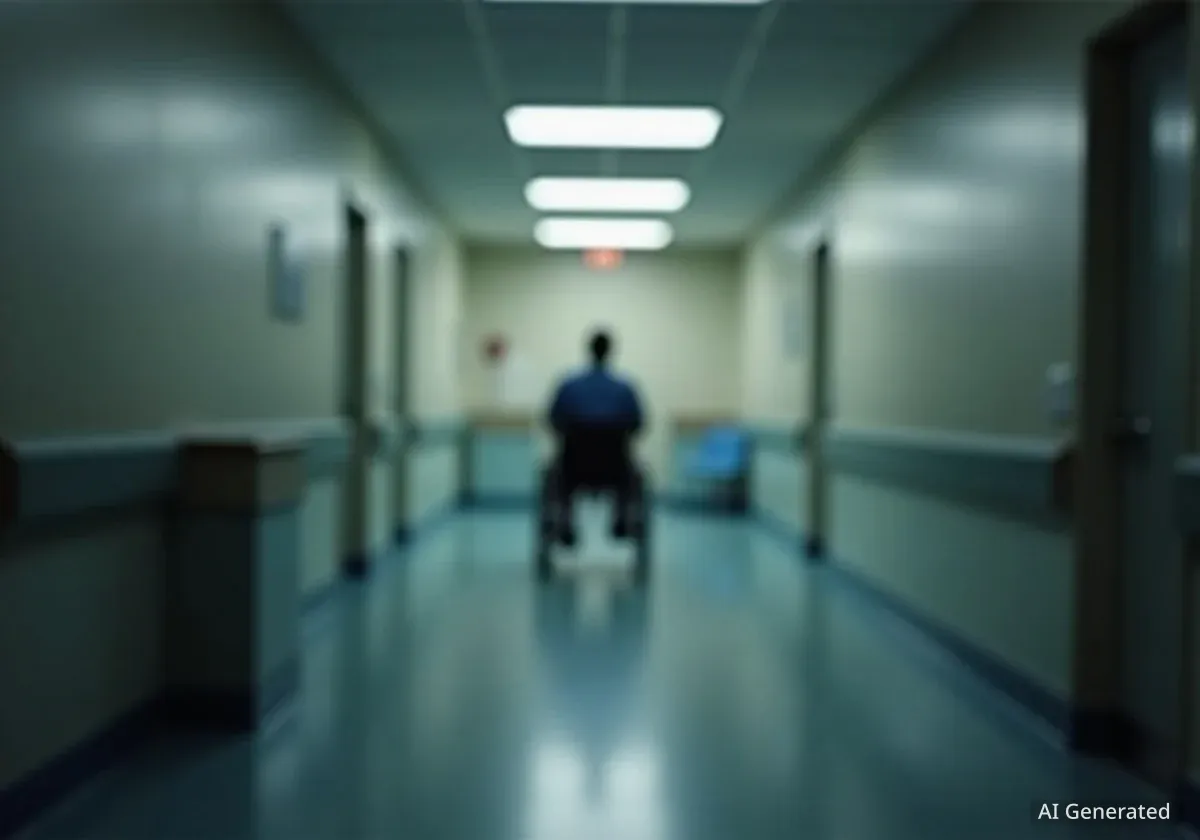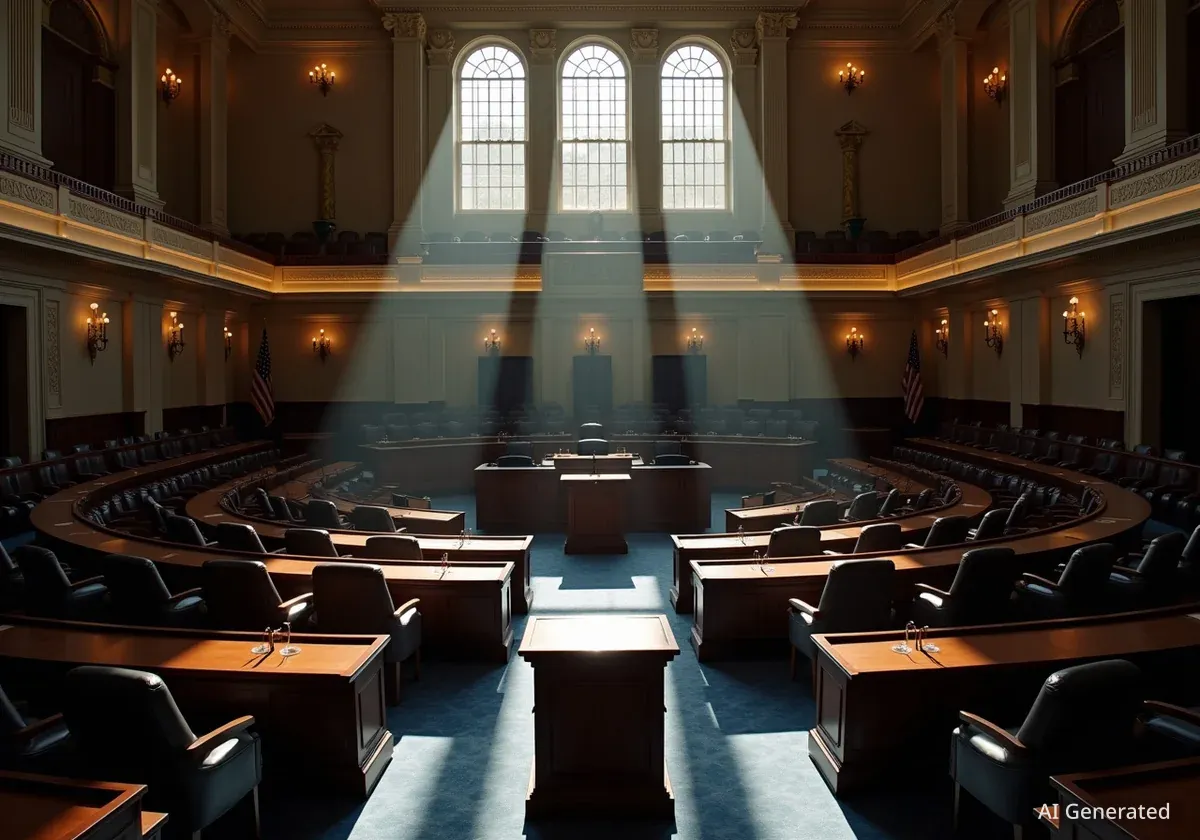Efforts to prevent significant cuts to Medicaid provider reimbursements in North Carolina reached a stalemate last week. A disagreement among the state Senate, House of Representatives, and Governor Josh Stein has left funding for essential healthcare services uncertain. These cuts, potentially impacting 3.1 million North Carolinians, are set to begin on Wednesday unless a resolution is found.
The dispute centers on how to fully fund the state’s annual Medicaid rebase, a budget adjustment that accounts for changes in enrollment and care costs. A previously approved “mini budget” fell short by $319 million, leading to warnings from the N.C. Department of Health and Human Services (NC DHHS) about severe consequences for providers and patients.
Key Takeaways
- North Carolina faces a $319 million shortfall in Medicaid funding.
- Provider reimbursements could be cut by 3% to 10% starting Wednesday.
- A political standoff between the Senate, House, and Governor prevents a resolution.
- The House and Senate disagree on linking Medicaid funding to a children's hospital project.
- Federal policy changes could further impact Medicaid expansion in the state.
Legislative Standoff Over Funding
The core of the issue involves conflicting proposals for the Medicaid rebase. NC DHHS initially requested $819 million for the rebase. However, the General Assembly approved only $500 million in July, creating the $319 million deficit.
Devdutta Sangvai, Secretary of NC DHHS, previously alerted legislative leaders to the need for "painful cuts" if the shortfall was not addressed. These cuts, he warned, would have "serious and far-reaching consequences" for healthcare access across the state.
Medicaid in North Carolina
- Covers 3.1 million residents.
- Proposed cuts range from 3% to 10% for providers.
- Some providers, like nursing homes, face a 10% reduction.
The dispute intensified on September 22. The Senate passed a bill that would fund the Medicaid rebase. However, this bill also included over $103 million for a new 500-bed children’s hospital in Apex, a joint project between UNC Health and Duke Health.
While $320 million was allocated for this hospital in the state’s 2023 budget, these funds require re-approval for the 2025 budget. The House of Representatives now believes these funds should be used for other urgent needs.
"A deal is a deal, and they agreed to it," said Senate leader Phil Berger (R-Eden), defending the decision to link hospital funding to the rebase. "They need to live up to what the arrangement was. They need to agree to this bill, and then we’ll go ahead and fund Medicaid."
The House responded on September 23 by unanimously voting for a different bill. This substitute bill would fund the Medicaid rebase but remove the hospital funding. House Speaker Destin Hall (R-Granite Falls) cited inflation as a reason for the change in position.
"As time has moved on, the facts have changed. And so even if there was, you know, some sort of agreement that they feel like needed to be honored, the facts have substantially changed," Hall stated. He added, "They’re not the same as they were back in 2023 because the value of $1 is not the same as to the Children’s Hospital."
Differing Priorities and Tax Plans
Speaker Hall also noted that North Carolina already has several children's hospitals. "We have at least five children’s hospitals in this state. We’ve got three or four really big ones," he said. "Obviously, if we felt like the children of this state were not getting health care, we would act. But the fact is, they are getting health care."
Beyond Medicaid, the two chambers also disagree on a multi-year plan to lower taxes. The Senate favors disregarding state revenue triggers to push tax rates lower. The House, however, prefers a more cautious approach.
Rep. Donny Lambeth (R-Winston-Salem), co-chair of the Joint Legislative Oversight Committee on Medicaid, described the House’s Medicaid funding bill as "cleaner." He told NC Health News, "We don’t have a lot of things in it other than what we have to."
The House's version of the bill has been sent to the Senate. However, neither chamber is scheduled to meet again until October 20, which is weeks after the proposed cuts are set to take effect.
Governor's Call for Action
Governor Josh Stein, a Democrat, criticized the legislature during a September 25 news conference. He accused lawmakers of prioritizing politics over public health.
"The General Assembly has failed you," Governor Stein said. "But it is not too late for them to step up and do the right thing. I’d hoped that the legislature would realize that helping people get the health care they need is more important than grinding their political axes."
Background on Medicaid Rebasing
Medicaid rebasing is an annual process. It adjusts the program's budget based on changes in enrollment numbers and the actual cost of providing care to beneficiaries. This ensures that funding aligns with current needs.
Some lawmakers, including Senator Berger and Representative Lambeth, argue that the cuts could be delayed or avoided without legislative intervention. They suggest that NC DHHS has sufficient funds to cover the shortfall temporarily.
Sen. Ralph Hise (R-Spruce Pines) stated, "Making provider cuts is solely the choice of the department and how they choose to deal with budget surpluses or budget deficits, perceived or real." Rep. Donna McDowell White (R-Clayton) called the Wednesday deadline a "false date," assuring her constituents that "the money’s there."
Governor Stein countered these claims. He said NC DHHS has already used its resources to delay the cuts for as long as possible. He noted that the department had warned about potential rate cuts since May through various communications.
"We put off the cuts for a full quarter of this fiscal year," Stein explained. "We did not institute these cuts in July, in August or September because we knew they were coming back in September. We were as clear as a ringing bell that this was their moment to solve this problem, and we could put the cuts off till October."
Further delays, according to Stein, would only increase the financial burden. He emphasized that the legislature had multiple opportunities to address the issue in September but chose not to.
Proposed Solution
NC DHHS suggested using funds from the state’s Medicaid contingency reserve. This reserve is for unexpected program costs. Neither legislative chamber has acted on this option yet.
Potential Impact of the Cuts
The proposed cuts would have significant consequences for North Carolina's healthcare system. Josh Dobson, President and CEO of the North Carolina Healthcare Association, highlighted the severity for the more than 130 hospitals and health systems his organization represents.
Most providers would see reimbursement reductions of 3% to 8% for treating Medicaid patients. Certain facilities, such as nursing homes, acute care hospitals, and psychiatric residential treatment facilities, face even deeper cuts of 10%.
Dobson expressed concern that these reductions could force many providers, especially those in rural areas, to stop accepting Medicaid patients. Rural facilities often operate on narrow financial margins and serve a higher proportion of Medicaid beneficiaries.
"My hope would be that the department would delay these cuts to allow time for more negotiations," Dobson said. "It was a surprise that the department would go so quickly to 10 percent cuts without more discussion."
Wesley Wallace, a professor emeritus of emergency medicine at UNC Chapel Hill, warned of a "downward spiral of health care." He explained that if providers are not adequately paid, they may reduce services or close facilities. If Medicaid reimbursements become too low, providers may simply stop accepting Medicaid patients.
Jenna Beckham, an OB/GYN in Wake County, echoed these concerns. She noted that cuts could limit access to routine exams, prenatal care, and cancer screenings. "This will lead to longer wait times, delayed diagnoses and worse health outcomes for the patients of our state," Beckham stated, emphasizing the impact on vulnerable populations, including those in rural communities and individuals with complex medical needs.
Broader Healthcare Funding Challenges
The current state-level funding crisis occurs amid other significant national healthcare funding changes. The "One Big Beautiful Bill Act," signed by former President Donald Trump in July, proposes nearly $1 trillion in Medicaid cuts over the next decade. This would shift more financial responsibility to states.
Additionally, federal lawmakers failed to renew key Affordable Care Act (ACA) subsidies from the pandemic era. This has prompted insurance companies in North Carolina and other states to seek rate increases ranging from 6.9% to 36.5%.
A new federal rule, effective December 2026, will require Medicaid enrollees to prove they are working, attending school, or volunteering for at least 80 hours per month. Jay Ludlam, North Carolina's head of Medicaid, indicated that implementing this work requirement will necessitate a costly and complex new platform to verify beneficiaries' employment status.
The "One Big Beautiful Bill Act" does not provide federal funding for this platform. Instead, it reduces the amount of taxes states can impose on providers, limiting North Carolina’s ability to offset the work requirement’s cost.
Ludlam warned that the combination of the work requirement and a lower provider tax cap could undermine North Carolina’s Medicaid expansion. Approved in 2023, the expansion raised the income threshold for Medicaid eligibility, covering many low-wage workers.
As of September 2, over 680,000 people, approximately 22% of the state’s total Medicaid enrollment, gained coverage through this expansion. Ludlam stated that these enrollees are at risk of losing benefits due to a financial "trigger" in the Access to Healthcare Options Act.
This clause discontinues expansion if the state is forced to absorb any costs. The reduction in provider taxes effectively activates this trigger. Lawmakers would need to modify or remove this clause to protect the expansion.
"Because of the changes in the federal One Big Beautiful Bill, state legislators need to act and pass new legislation so that nearly 700,000 North Carolinians don’t lose health care coverage or access to services," Ludlam said during a virtual town hall on September 24. "And the change does not require more spending."
Pete Tannenbaum, Executive Director of Alliance Medical Ministry, a free clinic serving working individuals who earn too much for Medicaid but too little for private insurance, anticipates a surge in uninsured patients. "The downstream financial impact of this crisis will hit clinics like ours and hospitals very hard," he told reporters. He warned that individuals with chronic conditions might delay routine care, leading to more emergency room visits and higher treatment costs. "This is not just a financial crisis," Tannenbaum concluded. "It’s a human crisis."





